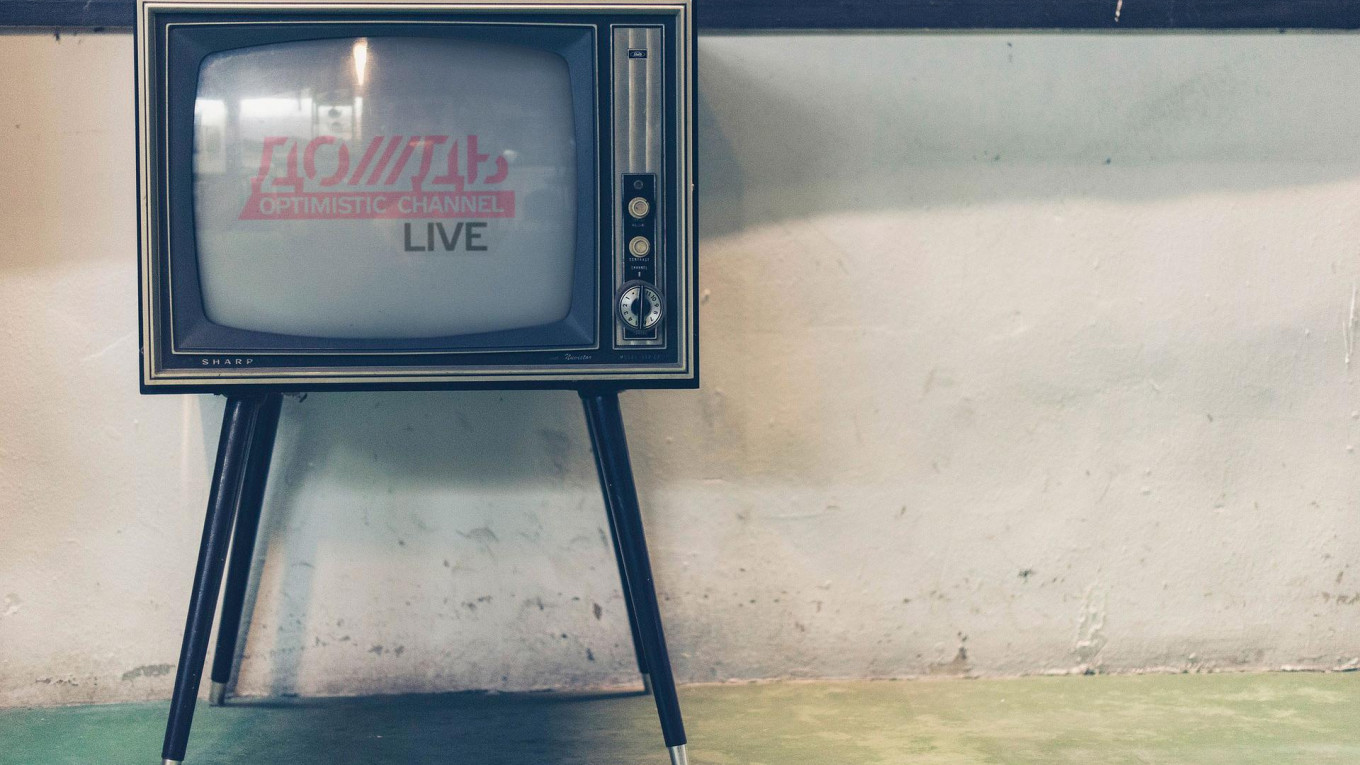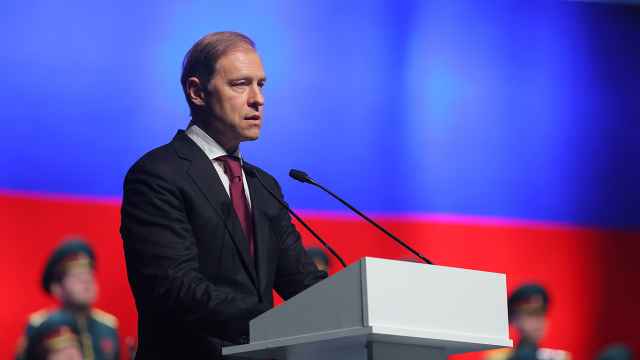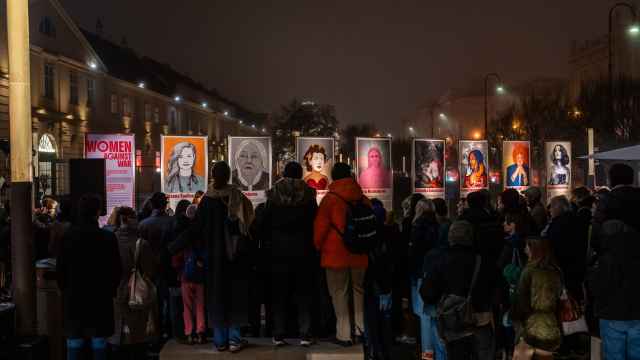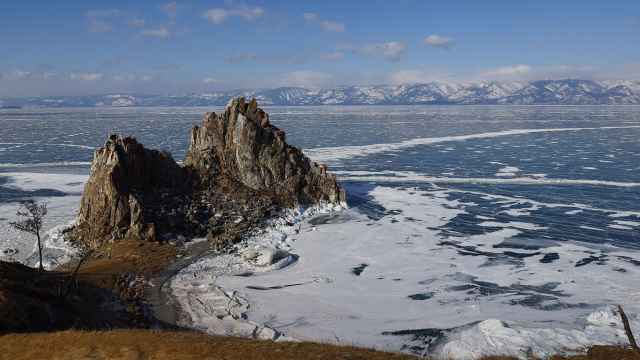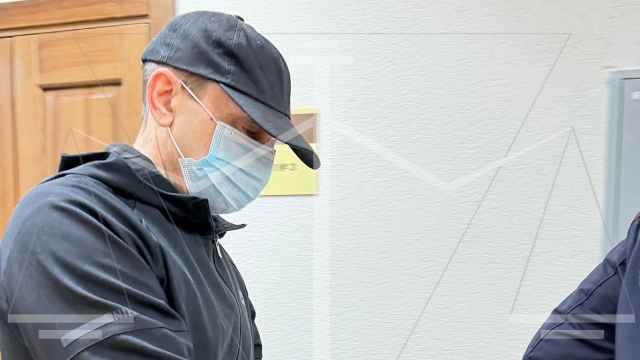You might think officials in Kiev have no bone to pick with anyone in Russia’s anti-Kremlin opposition, but you’d be wrong. On Thursday, Ukraine’s National Council on Television and Radio Broadcasting voted unanimously to remove Dozhd* — one of Russia’s last remaining independent television networks — from the airwaves, ruling that the channel is guilty of broadcasting illegal content.
The surprise crackdown dominated news headlines for the rest of the week in Russia, where Dozhd has built up a reputation for reporting critically on Kremlin politics.
What’s the big deal? The Moscow Times breaks down the main things you ought to know about this scandal and why it’s even a news story.
Dozhd Is Russia’s Only Remaining Opposition TV Network
Dozhd is arguably the last remaining independent television channel in the country that still provides a platform for members of Russia’s political opposition.
The channel was founded in 2010, during the thaw that occurred during Dmitry Medvedev’s brief presidency. Dozhd gradually became known as a pro-opposition outlet, especially during its extensive coverage of the 2011-2012 mass protests in Moscow, and its reporting on the Pussy Riot trial, political activism by opposition firebrand Alexei Navalny, and other events that generally irritated the Kremlin — an increasingly easy feat, after Vladimir Putin returned as commander-in-chief in 2012.
In 2014, Dozhd aired a survey asking viewers if they would have abandoned Leningrad to the Nazis in World War II, instead of ordering the city to endure a siege that ultimately claimed the lives of roughly a million civilians. Veterans’ groups, patriotic activists, and state officials responded with outrage. Asked about the poll, the Kremlin’s spokesman, Dmitry Peskov, said Dozhd had acted “way out of every possible line.”
Soon, cable and satellite television distributors started dropping Dozhd from their packages. The channel’s owners say the companies acted on informal orders from the Kremlin. Then, in an unlikely coincidence, the station’s landlord at its swanky office complex in downtown Moscow suddenly evicted Dozhd, citing vague “remodeling” plans as the reason.
These twin troubles nearly destroyed the TV channel. Today, still struggling financially, Dozhd is available in Russia only over the Internet, where most of its content is hidden behind a paywall. Still, though, Dozhd says 1.5 million people visit its website and tune in, every month.
Ukraine Banned Dozhd for Portraying Crimea as a Part of Russia
The decision to ban Dozhd in Ukraine was announced on Jan. 12, but the official document explaining the ban won’t be released until Jan. 16. According to Sergei Kostinsky, a member of Ukraine's National Council on Television and Radio Broadcasting, Dozhd's programs questioned the sovereignty of Ukraine's borders.
“[The channel] regularly shows maps presenting Crimea as Russian territory,” Kostinsky told reporters. “Dozhd correspondents also travel to Crimea [from Russia] in violation of Ukrainian law.”
Ukrainian officials have also warned Dozhd previously about airing advertisements that promote Russian companies. After negotiations, the station ultimately agreed to broadcast an ad-free version of itself in Ukraine. That ad-free version has already gone live, but the National Council hasn’t yet formally received the paperwork for “Dozhd Ukraine,” meaning that its ruling affects only the previous iteration of Dozhd, as it still airs in Russia.
Ukrainian regulators have given cable television providers one month to replace (Russian) Dozhd with “another channel.”
The Crimean Catch 22: Russian or Ukrainian?
Ever since it annexed the territory in March 2014, the Kremlin has strictly regarded Crimea as a part of the Russian Federation, where news organizations now have to be careful about how they describe the peninsula.
In Russia today, portraying Crimea as “Ukrainian” or “annexed” is grounds for criminal prosecution as an illegal “incitement to separatism,” and at least one Russian citizen has already been sentenced to jail time, merely for sharing an article on social media that described Crimea as a part of Ukraine.
Natalya Sindeyeva, Dozhd’s general director, admits that her station has aired maps presenting Crimea as Russian territory. “According to the Article 65 of the Russian Constitution, the Republic of Crimea is a subject of the Russian Federation,” Sindeyeva said in a statement published online.
Like most countries, Ukraine hasn’t recognized Moscow’s claim on Crimea, and still legally considers it Ukrainian soil. State officials in Kiev demand that the world respect the country’s territorial integrity, insisting that anyone traveling to Crimea pass through Kiev, so visitors cross a border under Ukrainian control, before entering the disputed region.
Not everyone obeys this rule, however, especially when it comes to reporters traveling in the presidential press pool. One of the journalists in this group told The Moscow Times that reporters usually fly on the same plane as the president, making it impossible to cover Putin’s visits every step of the way, while simultaneously following Ukraine’s laws.
The journalist also told The Moscow Times that Putin’s trips to Crimea have circumvented Ukrainian transit points for years already, making it strange that officials in Kiev are cracking down on journalists only now.
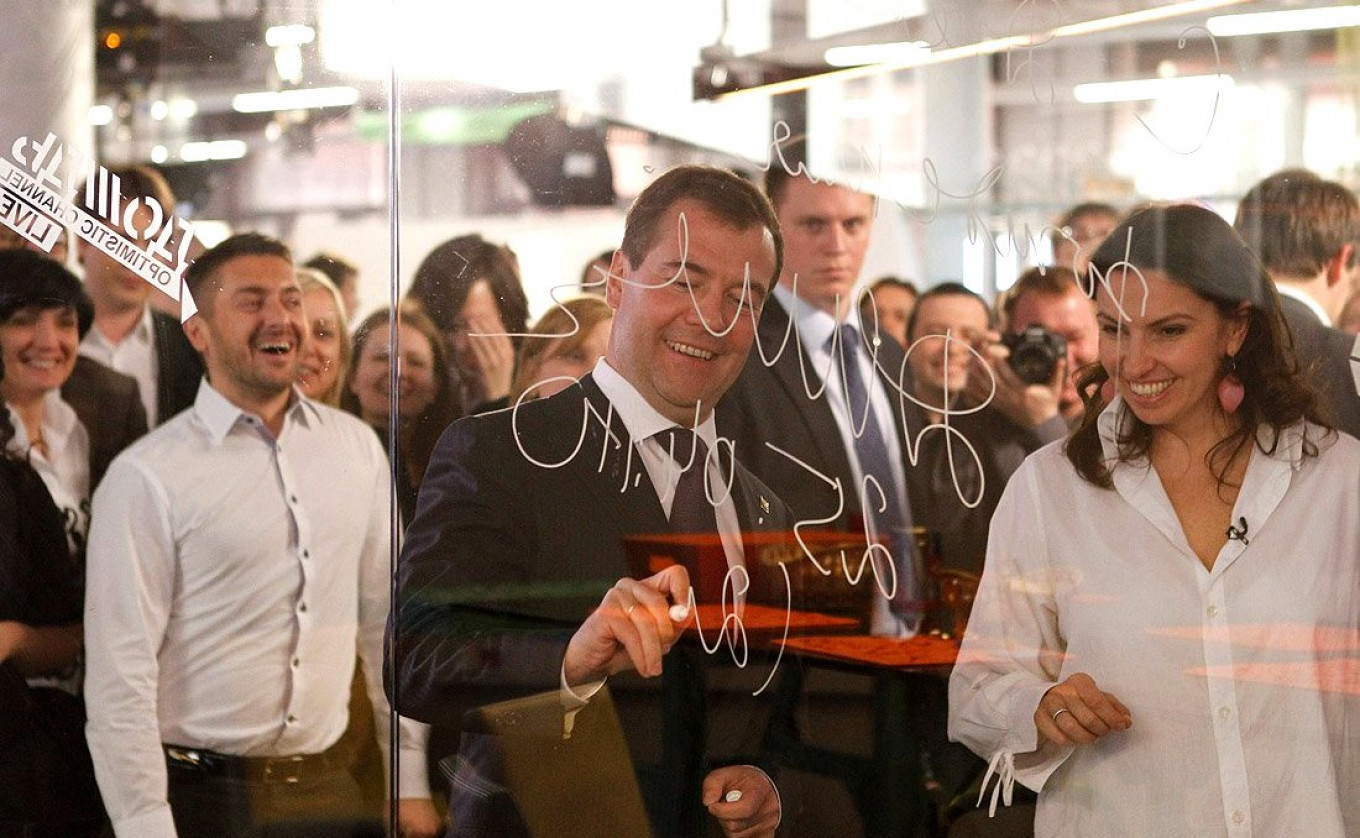
Russian Officials Rushed to Defend Dozhd
Given the suspicions that the Kremlin is to blame for knocking Dozhd off the airwaves in Russia, it’s ironic that some of the station’s loudest defenders against Ukrainian censors today are Russian state officials.
The Kremlin called the ban “a destructive” move on Ukraine's part, and the speaker of the State Duma, Vyacheslav Volodin, said it was an “unacceptable” “violation of free speech.”
“I hope the authorities in Kiev have not sunk to such censorship,” Maria Zakharova, the spokesperson of Russia’s Foreign Ministry, wrote on Facebook. “If this information is true, we will inform the OSCE [the Organization for Security and Co-operation in Europe.]”
Desperate though they are for support, even Dozhd’s owners have called out officials on their hypocrisy.
“Good evening, Maria, and thank you very much. Could you also inform the OSCE about the illicit ban on Dozhd that Russia's telecom operators carried out under pressure from the presidential administration and the Communications Ministry? It is much more important for the channel to have access to its native Russian audience,” Dozhd's co-owner, Alexander Vinokurov, wrote in a comment on Zakharova's Facebook post.
Russian Liberal Media Community Mourns Ukraine's Loss
Liberal-leaning journalists in Russia have described the banning of Dozhd as an enormous loss for Ukraine.
“An information frenzy and life of illusions — that’s what’s guaranteed when you refuse to allow alternative and sometimes unpleasant sources of information. It’s nice and convenient at the beginning, but it lacks any long-term benefits. It's not a blessing,” Evgeny Feldman, a prominent Russian photographer, wrote on Facebook.
Ukrainians with access to Dozhd got a more complex depiction of Russia than they could find on other channels, says Pavel Kanygin, a reporter with the independent newspaper Novaya Gazeta. “Now the picture will be simpler,” Kanygin wrote on Facebook. “Those who want simpler will celebrate it… But this celebration will not solve the issue of Crimea or any other issue. It's just another step to something archaic and categorical.”
Ukraine Says It Doesn't Need Russian TV Channels
The mood in Ukraine is different, however. Many commentators point out that the channel’s presentation of Crimea clearly violates Ukrainian laws, making it no different, in the eyes of many, from Russian propaganda, much of which is already banned in Ukraine.
“Natalya Sindeyeva explained that Crimea is ‘Russian territory’ according to Russian law, and the channel must comply with the law,” Ukrainian journalist Roman Tsymbalyuk wrote in a column for the Unian news agency. “However, this answer to a question about Crimea violates Ukraine's constitution and territorial integrity. We will not compromise on that,” he wrote.
“If you want to broadcast in Ukraine, you have to comply with Ukrainian laws. If you comply with Russian laws, well, go broadcast in Russia,” he added.
Tsymbalyuk also points out that Dozhd devotes much of its airtime to Russia's domestic affairs, which is simply uninteresting to Ukrainians, he claims.
Dozhd isn't very influential in Ukraine, agrees Isaac Webb, a Kiev-based journalist for Global Voices and a former junior fellow at the Carnegie Endowment for International Peace. “Maybe a couple of thousand people watched it on TV – liberals in Kiev and Odessa. But I doubt that many more people did,” Webb told The Moscow Times.
According to the channel's editor in chief, Roman Badanin, some 500,000 households in Ukraine had access to Dozhd. “Having access, however, doesn't mean they were all watching it,” argues Webb. “So I don't think it's a huge loss for Ukraine. After all, Ukrainians can watch it on the Internet. The audience Dozhd is targeting gets its news from the Internet, anyway.”
*A note to readers: Mikhail Fishman, the chief editor of The Moscow Times, also hosts a television show on the TV network Dozhd.
A Message from The Moscow Times:
Dear readers,
We are facing unprecedented challenges. Russia's Prosecutor General's Office has designated The Moscow Times as an "undesirable" organization, criminalizing our work and putting our staff at risk of prosecution. This follows our earlier unjust labeling as a "foreign agent."
These actions are direct attempts to silence independent journalism in Russia. The authorities claim our work "discredits the decisions of the Russian leadership." We see things differently: we strive to provide accurate, unbiased reporting on Russia.
We, the journalists of The Moscow Times, refuse to be silenced. But to continue our work, we need your help.
Your support, no matter how small, makes a world of difference. If you can, please support us monthly starting from just $2. It's quick to set up, and every contribution makes a significant impact.
By supporting The Moscow Times, you're defending open, independent journalism in the face of repression. Thank you for standing with us.
Remind me later.


